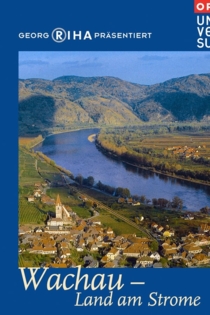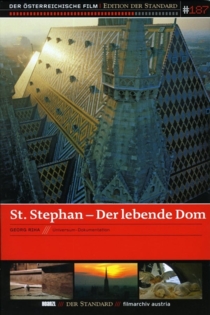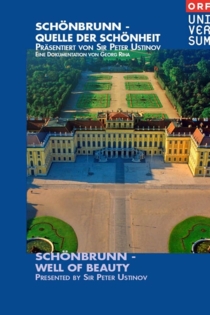
Georg Riha
1951 (74 года)Schulzeit als Ruderer sportlich aktiv (1968 und 1969 3 x
Juniorenstaatsmeister, 1969 Silber bei der Junioren-WM im Achter). Ab
1972 studierte er an der Universität für Musik und darstellende
Kunst Wien, Abteilung Film und Fernsehen (Filmakademie) das Fach
„Kamera“. Noch während seines Studiums gründete er 1975 die FWG
Foto Werbe GmbH. Über Werbe-, Industrie- und Architekturfotografie
landete er 1984 bei der Flugfotografie und kehrte schließlich ab
1988 auch zur Filmproduktion und Regie zurück. Für die Realisierung
außergewöhnlicher Blickwinkel und Kamerafahrten benutzt er (meist
selbst entwickelte) Spezialkamertechnik wie zB Helikopter-Flugaufnahmen
mit WESCAM oder CINEFLEX Helium-Zeppelins
„CAMBLIMP 40/200/400“ Seilkamera CAMCAT
(konstruiert von Victor Alder) Zeitrafferkamera
(Timelapse) CAM35TL (entwickelt von Manfred Gruber) 1994 errichtete Riha
seinen Studiokomplex in Pressbaum (Studios, Ateliers, Werkstätten,
Produktionsbüros, Postproduction Facilities, Archiv, Tonstudio). Der breiten
internationalen Öffentlichkeit bekannt wurde Riha 1997 mit einer
Dokumentation über den Stephansdom in der Sendereihe Universum des
Österreichischen Rundfunks. Neben der Romy in der Sparte „Beste
Kamera“ wurden ihm dafür mehrere internationale Preise verliehen.
Es folgten viele weitere Dokumentationen über österreichische
Monumente mit höchstem Qualitätsanspruch wie z.B. Glockner – der
schwarze Berg, Schönbrunn – Quelle der Schönheit, Wachau – Land
am Strome und Salzburg – Im Schatten der Felsen. Für die Weltausstellung
in Hannover 2000 produzierte er den Film Visions of Austria und als
weiteren Höhepunkt im Jahr 2000 den Film Tirol – Land im Gebirg
mit Musik von Philip Glass. Die CAMCAT kam u.a. beim
Champions-League-Finale im Pariser Stade de France (2000) und
weiteren Champions-League-Spielen, beim Janet Jackson Konzert im New
Yorker Madison Square Garden (Emmy Award 1999 für „Special Camera
Operating“), bei Pferderennen in Ascot (2000 bis 2004 und 2006 bis
2007), bei den Olympischen Winterspielen in Salt Lake City (2002),
bei den Leichtathletik-Weltmeisterschaften in Sevilla (1999) und
Edmonton (2001), beim French Open (1999 bis 2005), bei den
Olympischen Sommerspielen in Athen (2004), beim Papstbesuch am
Weltjugendtag in Köln (2005), bei den Olympischen Winterspielen in
Turin (2006), beim Papstbesuch in Bayern (2006), bei der Rad-WM in
Salzburg (2006), bei den Olympischen Sommerspielen in Peking (2008)
und bei Konzerten von *NSYNC und Robbie Williams sowie bei
internationalen Spielfilmen wie Harry Potter, Troja und Eragon zum
Einsatz. 2005 wurde Georg Riha für
internationale Verdienste um den Österreichischen Film mit dem Billy
Wilder Award ausgezeichnet, 2006 erhielt er den Axel-Corti-Preis.
Wachau - Land am Strome
Georg Riha
Peter Simonischek, John Shrapnel
Join Georg Riha and his team in this ORF-UNIVERSUM production and discover one of the most beautiful stretches along the Danube.Featuring a great number of aerial shots, this documentary captures the cultural and natural beauty of the entire region, as well as portraying the Alzinger family in their vineyards during the seasons.The Wachau, a UNESCO World Heritage Site, is presented from unusual perspectives, offering spectacular views of this picturesque area.
Wachau - Valley of Golden Magic

Musik und Meer
Georg Riha
Frank Hoffmann, John Megill
In the year 2001 the acclaimed violin vituoso Julian Rachlin founded a festival of chamber music in Dubrovnik. He introduced a new and successful concept of gathering some of the most famous world musicians and letting them play the music that they personally enjoy. In 2008 the austrian filmmaker Georg Riha joined the festival to cinematically accompany the star violinist: Masterly, as usual, and in the highest aesthetics as well as in technical quality, he succeeded with this film composition to tape the magical atmosphere of the city at the sea and the relaxed artistic work of Julian Rachlin and his friends. See the Rector’s Palace, rehearsals, the sea, conversations, sun and wind, concerts and a lot of fun.
Music at the Sea

Wiener Wasser
Georg Riha
Wolfgang Böck, Howard Nightingall
As all the world knows, Vienna is a city on the Danube.Day after day, the metropolis and its inhabitants consume roughly 370,000 cubic metres of water – hardly unusual for a city as big.It may come as a surprise that not one drop of this water is abstracted from the Danube.All water drunk, used for cooking, showering and flushing or drawn from wells, all water that enters sewers and treatment plants originates in the Alps.Crystal-clear drinking water adds glamour and brilliance to the city.How this valuable resource travels to Vienna, changing itself and the city in the process before ending up in the river, is the stuff of stories. This is the story of Vienna’s water.
Vienna's Water

St.Stephan – Der lebende Dom
Georg Riha
Bruno Ganz, John Shrapnel
St. Stephen’s Cathedral ranks amongst Austria‘s most famous cultural monuments. Yet, one would not think of that Cathedral being one of the most astonishing natural areas in Austria.Georg Riha and his team have explored the Cathedral from its foundations to the top of its 136 meter spire and discovered a true botanical and zoological garden: wild animals, exotic butterflies, kestrels, moss, lichen and even trees.
St. Stephen's: The Living Cathedral

Salzburg - Im Schatten der Felsen
Georg Riha
Peter Simonischek, Paul Hollingdale
An ancient fortress, a historic centre of true baroque, the venue of a legendary stage festival - this is the Salzburg familiar to everyone. But Georg Riha's documentary presents Mozart's city from perspectives never seen before.Unshackled by space and time the viewer enters upon a unique filmic foray into one of the world's most popular cultural centres, discovering the still unknown and hidden beauties of this fascinating city off the beaten tourist tracks.
Salzburg - In the Shadow of the Crags

Wiener Wälder - Grüne Juwele
Georg Riha
Peter Simonischek
Vienna is surrounded by nature – a green belt encloses the city and contributes to the high quality of life in Austria’s capital.However, it is not just these woods the citizens of Vienna can name their own. The city of Vienna also owns the protected source areas in the Hochschwab and Schneeberg-Rax region, where Vienna’s Water comes from.2005 marks the 100th anniversary of the creation of the green belt around Vienna. On that occasion Georg Riha and his team have produced this ORF-UNIVERSUM documentary, commissioned by the City of Vienna.Sit back and enjoy the rough beauty of the Hochschwab region, the majestic peak of Schneeberg, picturesque autumn sceneries, the „classic“ Vienna Woods and the fascinating winter wonderland of the Danube Wetland Forest National Park.
Vienna's Forests - Jewels of Green

Schönbrunn - Quelle der Schönheit
Georg Riha
Peter Ustinov, Miguel Herz-Kestranek
Schönbrunn is a world of marvels and mystery, of public glamour and curious secrets. The wealth of its building and landscape architecture, the grand views and hidden details, the wildlife, tamed nature as well as its past and present human population supply more stories and images than even the most insatiable camera can record.Schönbrunn in the protean succession of the seasons, of light and shadow, day and night is presented by Sir Peter Ustinov and was broadcasted in the “ORF-UNIVERSUM”-series for the 250th anniversary of the Schönbrunn Zoo.
Schönbrunn - Well of Beauty

Bauten für die Künste
Georg Riha
Martin Loew-Cadonna, Howard Nightingall
In no other province have as many cultural buildings been erected in the last two decades as in Lower Austria.The documentary Building for the Arts presents a few outstanding examples of this cultural development.Starting with St. Pölten’s cultural district and the “Art Mile” in Krems, we show how contemporary architecture has uniformly established itself - from the revitalization of historic sites, including monasteries and castles, to the construction of sensational new buildings. The viewer will be led through the broad spectrum of exceptional building culture in Lower Austria, a culture which provides art, theater and music with the plentiful and spectacular stages it deserves.
Buildings for the Arts

Kellergassen in Niederösterreich - Weinkultur und Lebensfreude
Georg Riha
Peter Simonischek, Howard Nightingall
A Kellergasse – the cellar lane – is one of the distinguishing cultural and physical features of the winegrowing region Niederösterreich – Lower Austria. There are more than a thousand of them. Until recently, wine was not only stored in the Kellergasse, but pressed and fermented there as well. Today, the Kellergassen have less to do with occupation and more with recreation. A documentary by Georg Riha follows a year in the life of this valuable cultural legacy.
The Cellar Lanes of Lower Austria - Wine Culture and the Pleasures of Life

Glockner - Der schwarze Berg
Georg Riha
Michael Köhlmeier, Peter Wolfsberger
Grossglockner is Austria’s highest peak and the eastern Alps’ most impressive summit. Rising to a height of almost 3900 meters, the ‘BLACK MOUNTAIN’ towers over an Alpine natural paradise, the Hohe Tauern National Park, where ibex and chamoix roam the cliffs, wild flowers grow in amazing profusion and golden eagles soar above the valleys.Georg Riha presents dizzying perspectives of the glaciers, sheer cliffs and steep ravines that shape the face of this rocky giant and continue to attract and challenge a steady stream of mountaineers.
Glockner - The black Mountain

Der Zauber von Laxenburg
Georg Riha
Peter Simonischek, Paul Hollingdale
The film tells the story of Laxenburg from 13th century, when it was used for hunting and fishing trips by the imperial Habsburg family, to modern day, a popular summer resort and a bustling international community. Today Laxenburg is also home to IIASA, the Austrian Film Archive, and the International Anti-Corruption Academy. The film will also feature these organizations, their history, and the important work they do in the field of research and diplomacy that goes far beyond Austria's borders.
The Magic of Laxenburg
